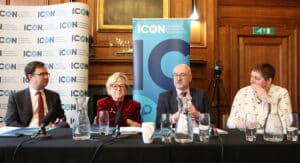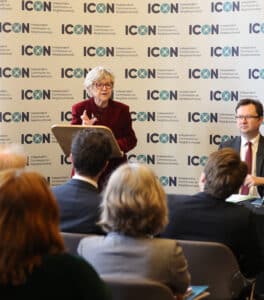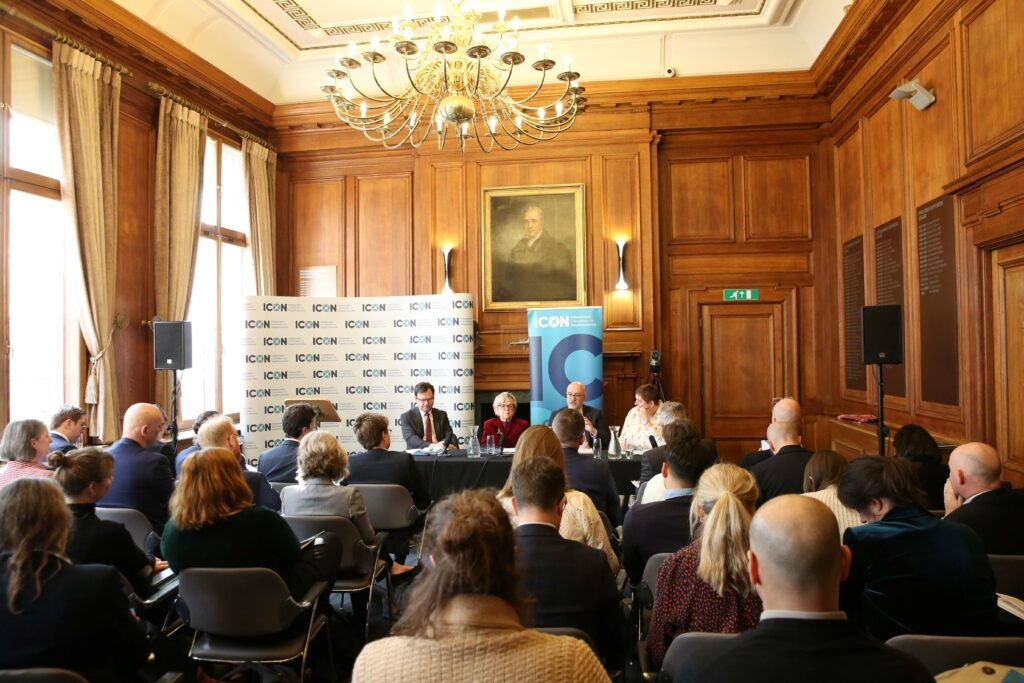Last Wednesday, the Independent Commission on Neighbourhoods published its first report, Think Neighbourhoods, at a busy Westminster panel event hosting Alex Norris MP and Baroness Hilary Armstrong.
The Independent Commission on Neighbourhoods’ (ICON) Interim Report launched last Wednesday. The report, Think Neighbourhoods, outlines the case for implementing neighbourhood-focused policy interventions at a hyper-local level.
To launch the report, ICON invited community leaders, government officials, and other stakeholders involved or interested in neighbourhood and national regeneration, to a central London panel discussion.
The panel was chaired by Baroness Hilary Armstrong; now a peer and chair of ICON, Baroness Armstrong was Chief Whip for the Labour Government from 2001 to 2007 and an MP from 1987 to 2010. During her time as Minister for Local Government, Baroness Armstrong oversaw the New Deal for Communities, one of the most successful neighbourhood regeneration initiatives in recent times.
Baroness Armstrong was joined by the current Minister for Housing, Communities and Local Government, Alex Norris MP, who has been key in supporting ICON’s launch. Also joining the panel were Angie Wright, ICON Commissioner and Chief Executive Officer at B-Inspired, and Jon Rouse, ICON Commissioner and Chief Executive Officer at Stoke-on-Trent Council.
“How do we change the experiences of people who happen to be born in places where there aren’t many opportunities?” – Baroness Hilary Armstrong
Echoing the findings in ICON’s Interim Report, Baroness Armstrong spoke to the pockets of disadvantage across the country. As ICON’s Hyper-Local Need Index (HLNI) shows, policy interventions are needed at a neighbourhood level to tackle the government’s 5 national missions. The HLNI identifies 613 ‘mission critical’ neighbourhoods falling furthest behind on meeting the government’s missions, home to 920,000 people – the ‘mission million’.
As a result of neighbourhood effects and negative feedback loops, the report identifies these as ‘sticky’ neighbourhoods wherein socio-economic need clusters, and a lack of opportunities prevents people from moving out of these areas or accessing traditional public services. Broad economic interventions often fail to reach these places due to neighbourhood-specific challenges that prevent them from taking root. Baroness Armstrong emphasised the importance of local interventions designed to address neighbourhood effects within areas and improve the hard-to-reach pockets of deprivation.
“There’s a growing recognition that if you don’t just want things to be a little bit better, if you want transformative change, that involves putting local people in charge.” – Alex Norris MP
Alex Norris’s message was clear: the model must change. This chimes with the evaluation in ICON’s Interim Report, stating that broad scale policy and economic interventions will not trickle down to the most disadvantaged areas.
Instead, a new approach is needed. One that channels power back into communities, ensuring local people have the agency and tools to improve their own neighbourhoods. The report establishes the need to create conditions for success within neighbourhoods before they can reap the benefits of broad scale investment.
“The only geographical level that you can successfully integrate public services with the broader work of the volunteering community and community activism is at the level of the neighbourhood.” – Jon Rouse CBE
As the panel continued to discuss the findings in ICON’s Interim Report, Jon Rouse and Angie Wright highlighted the positive work already being carried out by community organisations and local people to improve their neighbourhoods. Jon Rouse stressed the importance of cohesion between the community sector and local government to best utilise the skills and experiences of those already working to improve their local areas.
Angie Wright echoed this point, citing her own experiences with community investments through the New Deal for Communities programme. Reiterating the need for long-term partnerships and investment determined by local people, Angie Wright observed the benefits of tailoring national investment programmes to local need.
“It’s difficult for a local authority to try and create social capital in and of itself, but the support to local people to help foster it, that is what’s really important.” – Angie Wright
The panel was followed by a roundtable discussion joined by Josh Simons, MP for Makerfield. The roundtable gave key stakeholders from the community sector, business, and local government the opportunity to discuss the report in more detail and explore policy solutions that better serve a neighbourhood approach.
ICON are grateful to everyone who made it to the panel launch, whether in person or online. Think Neighbourhoods presents the case for a community focused alternative to tackling national problems, the lively discussions and wealth of ideas shared on the day shows the enthusiasm for this agenda.
Read ICON’s full Interim Report, Think Neighbourhoods.






